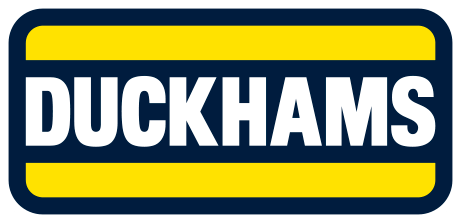CONTACT US
ASK THE EXPERT
Our experts have extensive knowledge of our full product range and their applications, ensuring we are able to identify and recommend the perfect lubricant for your motor vehicle.
FAQs
Or perhaps we already have the answer you’re looking for!
TALKING TO US IS SIMPLE.
POPULAR QUESTIONS
A lot of work has gone into ensuring that the formulated product is identical in colour to the iconic green colour of Duckhams Q 20W-50.
Duckhams Classic Q 20W-50 meets API SJ. This means that it is suitable for engines of year 2001 and older where modern filtration systems are fitted, approximately back to 1950. It is also suitable for older vehicles where full-flow filter systems have been retro-fitted.
Duckhams Classic Q SAE30 and SAE 40 are of minimal detergency and therefore suitable in older, generally veteran or vintage engines where strainers or very basic filtration systems are used.
This is an area where Duckhams has been able to combine the best of old and newer technologies. The product remains true to using mineral oil base with the additional advantages of oxidation and temperature stability that hydro-finished oils bring.
Because of the high quality and added hydro-treatment of the base oil, it will tend to remain as a lubricant for longer, rather than oxidising quickly, which cheaper base oils tend to do. In this respect, Duckhams will assist though ultimately, any mechanical problems should be addressed at source.
Yes. For older vehicles with strainer-type filtration, Duckhams Classic Q SAE 40 will help and for classics with full-flow systems Duckhams Classic Q 20W-50 will provide better oil pressure for longer because of the shear stability of the viscosity modifying additives.
“Modern oils” have approximately one-third of the amount of ZDDP (zinc dialkyl dithiophosphate) required by classic engines which is why Duckhams Classic Q should be used. Studies have also shown that too much ZDDP, often touted as a marketing benefit, can cause stiction of components. Duckhams have an optimised level of ZDDP well above that found in modern engine oils whilst avoiding an unnecessarily high level that can cause component stickiness.
Apart from the inherent stability of the oil itself, many other factors determine the drain interval of engine oil. Duckhams Classic Q is the market quality leader but, to err on the safe side, Duckhams would always recommend the oil change period recommended by the engine manufacturer.
High oil consumption can often be due to a number of factors such as worn piston rings or worn (usually exhaust) valve guides. Heavier oils can marginally improve this but repair is the best option. Where the cause is poorly formulated or “dumb-bell” blended engine oil, then Duckhams Classic Q is clearly the better choice.
It’s important that careful thought is given to the lay-up period for your classic car, even though it is not being used: Used oil can contain lacquers, varnishes oxidised products and sludge as well as acidic by-products of fuel combustion which can cause corrosion and component damage with all metal types being at risk.
If you change your oil before or during the lay-up period to Duckhams Classic Q, you effectively rid your car of corrosive contaminants while coating the parts with protective Duckhams lubricant. Then, when winter is over, you simply check your oil level, top-up if necessary, allow your car to idle for a few minutes and drive away.
Yes. Approximately 30% of engine wear occurs at start-up. Duckhams Classic Q 20W-50 is specifically designed so that the oil is very pumpable at start up, reaching the component contact points where it is needed quickly, thereby avoiding as much wear as possible. Warming up your engine before increasing the RPM can also be useful in classic cars.
Yes, Duckhams Classic Q is suitable for both classic petrol and classic diesel vehicles.

THERE’S MORE TO COME
Subscribe to our mailing list for the latest updates.

























